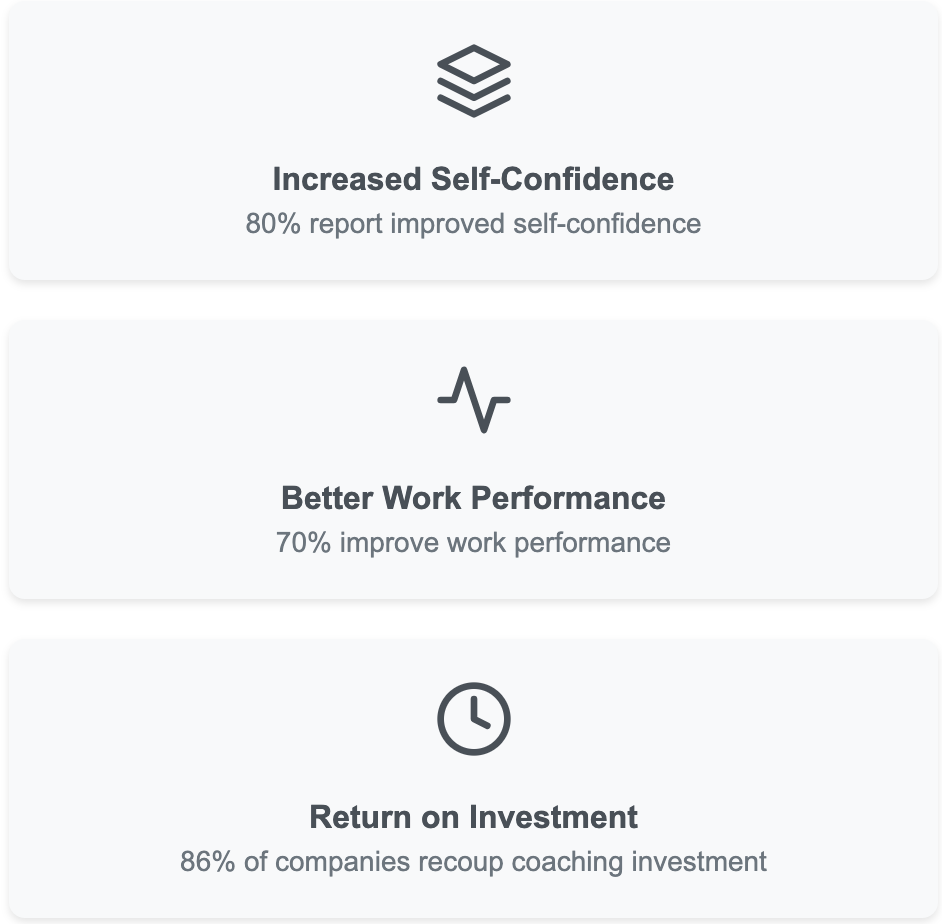Best Online Career Counselling - Top Career Coaching Services for Success in 2025
Career coaching has become really important in the career transition in today's changing job market.
As we get closer to 2025, the path of career development keeps changing, with new challenges and opportunities in different industries.
Let's look at some of the best online career counselling and career advancement coaching services for 2025, which can help professionals deal with these changes and reach their career goals.
Key Takeaways |
|---|
|
Understanding Career Coaching
Career coaching is a service that helps people develop their careers and reach their full potential.
It's different from regular career counseling because it looks at long-term professional development, mental health and personal growth.
This approach covers job skills, people skills, emotional intelligence, and work-life balance, which are all important in today's workplace.
A good career coach can help you:
- Find your strengths and weaknesses through tests and feedback
- Set realistic and ambitious career goals that match your values
- Develop strategies for moving up in your career, including networking and personal branding
- Improve your resume, cover letter, and interview skills to stand out when applying for jobs
- Change careers, including moving to new industries or starting a business
- Improve your leadership skills for senior roles
- Handle work stress and balance your work and personal life better
Top Career Coaching Services for 2025
1. MentorCruise: Personalized Mentorship
MentorCruise matches you with experienced professionals in your field. This is great if you want to move up in specific industries or roles. They use a special system to connect you with mentors who know a lot about the next career path you want.

MentorCruise offers one-on-one mentorship with industry experts, flexible scheduling for busy professionals, advice tailored to your career goals, access to mentors and senior leaders from global companies, and ongoing support throughout your career journey.
2. Career Contessa: Women-Focused Career Development
Career Contessa focuses on helping women in their careers, dealing with the unique challenges and opportunities that female professionals face.
They offer services from resume reviews to full coaching packages, all designed to help women succeed in their careers.

Career Contessa provides career planning for women's professional goals, salary negotiation strategies, workshops on topics like work-life balance and leadership development, mentorship programs connecting women with successful leaders, and resources for handling workplace challenges specific to women.
3. The Muse: Comprehensive Career Resources
The Muse offers many online career coaching options, from quick 30-minute chats to full career change packages.
They also have lots of free resources and job listings, making it a one-stop shop for career help. The Muse uses technology and human experts to give personalized career advice to many people.

The Muse offers resume and LinkedIn profile reviews, practice interviews, sessions with industry experts, guidance for changing careers, access to many career articles and videos, and job search strategies for different industries and career levels.
Specialized Career Coaching Services
4. Arielle Executive: High-Level Career Strategy
Arielle Executive helps high-level professionals and those who want to become leaders.
They offer personal coaching to help you move up in your career and improve your leadership skills. They combine career planning with executive coaches, personal branding and leadership training.

Arielle Executive provides leadership coaching, programs for individual and company leadership needs, preparation for high-level interviews, personal branding for top executives, and help for senior executives moving to new industries or roles.
5. Pathrise: Tech-Focused Career Acceleration
Pathrise is for professionals in the tech industry. They have a special payment model where you only pay if you get a job through their program. This means they're really focused on getting results for you.

Pathrise offers preparation for technical interviews, job search strategies for tech roles, networking in the tech industry, help with building a tech portfolio, and assistance with negotiating pay in the tech sector.
Choosing the Right Career Coach
When picking a top career coach online and coaching service, think about these things to find the best fit for you:
- Your specific career goals and needs
- The coach's experience and qualifications
- The coaching style and if it matches how you like to learn
- Cost and payment options
- Reviews from other clients, especially those in similar situations to you
- The range of services offered
- The coach's connections in your target industry or role
It's often good to have a first meeting to see if you and the coach get along. Many services offer a free call to talk about your goals and explore their approach.
The Value of Career Coaching
Getting career coaching can really help you, not just in finding a new job. Recent studies show:

While career coaching can cost a lot, the benefits in terms of career progress and job satisfaction of professional coach can make it worth it for many professionals.
Other benefits people report after career coaching include:
- Better balance between work and personal life
- Improved leadership and team management skills
- Clearer career direction and alignment with personal values
- Better ability to adapt to industry changes and new technology
- More successful career changes and promotions
Conclusion
As we look towards 2025, career coaching is becoming more important in a complex and competitive job market.
Remember, the best career coaching service not only helps you find a job but also helps you build a satisfying and successful career over time.
Ready to take your job search to the next level?
Try Loopcv Pro and streamline your job applications like never before.
With Loopcv, you can automatically send out hundreds of highly-targeted applications in just minutes, maximizing your chances of landing the perfect opportunity.
Start today and experience a faster, smarter way to reach your career goals!



